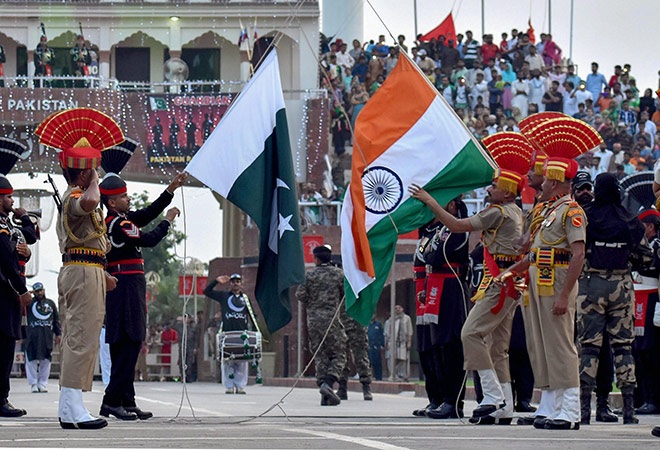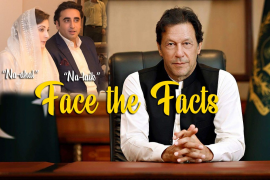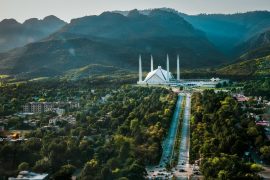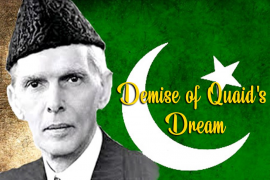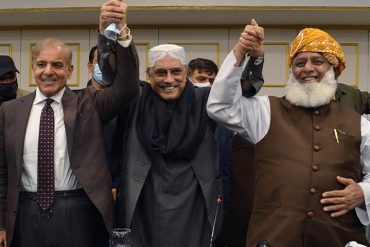STRAIGHT TALK by Hafeez Khan
The first time I landed in Bombay, now Mumbai, was mid eighties. It was in the evening as the sun was going down. The view from the plane was breathtaking. The coastline with boats lined up conveyed vibrancy. I was excited. I was received by my host with his team. He was a successful businessman.
We came out of the terminal to my friend’s car. It was the Indian version of Morris Oxford of the fifties, considered the most luxurious set of wheels. We made our way to my hotel, The Taj Mahal Palace. Located close to the beach, it has old world ambiance that is popular with foreigners. The legendry “Gateway to India” was close by.
Mumbai is the financial centre of India. It’s a magnet for those seeking work. I settled in the hotel, had dinner and then decided to take a walk to the seaside. Night had set in. This is when I got my first shock. I was on the sidewalk and suddenly felt I hit something. When I looked closely it was a sleeping person. Sidewalks were home to deprived folks. After finishing my meetings, I took time off for sightseeing. My host provided transport and guide. That was the period when India was a closed economy. It promoted protectionism and extensive state intervention.
I came away with mixed feelings. India had a strong potential, it was a sleeping giant. Businessmen were more reliant on connections and patronage rather than their entrepreneurial skills. However it was refreshing to see the freedom of a secular society where everyone was free to choose. Grass is always greener in a neighbor’s lawn. I was reminded of the lifestyle in Karachi of early seventies before restrictions were imposed by Bhutto and cemented by Zia Ul Haq.
Secularism is defined as government being neutral on matters of religion, neither enforcing nor prohibiting its free exercise. My experience is that when restrictions are imposed, hypocrisy in society shoots up sharply. I find it palpable each time I am in Pakistan.
I visited India again in early nineties to attend an international conference. By then the cold war had ended, USSR had imploded. After an acute balance of payment crisis, the government launched broad based economic liberalization. That was the turning point. The juggernaut took some time to gather speed; by the turn of century India’s annual GDP growth rate was 6% to 7%. From 2014 to 2018, during Prime Minister Modi’s first term, India became the world’s fastest growing economy surpassing even China.
2018 was a year of change in the subcontinent. Pakistan saw Prime Minister Imran Khan emerge victorious; breaking the stranglehold of the two parties that had dominated the political scene for many decades. Finally a clean leader had emerged seeking to change the direction of his country. He expressed willingness to re-ignite the stalled dialogue between neighbors.
Meanwhile Prime Minister Modi was in election mode seeking a second term. He placed greater reliance on “Hindutva” than resting on the laurels of a successful economy. This concept relies on a geographical based religious, cultural, and national identity. A must to be a true “Indian”. It resonated greatly with the electorate. PM Modi was returned with an overwhelming majority.
It was a resurgence of Hindu identity riding the wave of economic success. Why not? It was an opportunity that had not seen any outlet under centuries of Muslim rule. However it did narrow the base for over two hundred million plus Muslims, Sikhs, Buddhists and other minorities living within India. It is a philosophy adhered to by RSS, a fundamentalist organization. They gained international prominence when their political rally destroyed Babri Masjid in Ayodhya in December 1992. It was to regain control of a previous temple site. This Uttar Pradesh city is believed to be the birthplace of Lord Rama.
Their strict adherence to a puritan approach gained a strong foothold with rise to power of PM Modi. An accomplished communicator, he was considered a pragmatic leader leading India to become a global economic giant, despite undercurrents of Hindutva. However, upon being re-elected in 2019 he abandoned his role as an economic driver and donned saffron robes. His political decisions and actions have taken India into an unknown direction that can destroy the social fabric of India. As a country it has moved away from a secular state to a religious entity.
First was abolishing of Kashmir’s special status followed by SC Ayodhya judgment. The icing on the cake is this reckless enactment of controversial Citizenship Law and formation of National Registry that would rule on the eligibility to grant citizenship. Unfortunately all these decisions are being rammed down the throats through unfettered use of force. Resistance is spreading across India. Cyberspace and social media is being smothered.
PM Modi is polarizing a harmonious society; he is reversing integration developed over seven decades. His callous remark that culprits can be identified from their clothes is incendiary. Picture says more than a thousand words. The clip of two young girl students protecting a fellow male student from the police onslaught has achieved worldwide attention.
Thinking minds in India are urging caution against demolition of secular belief nurtured by Mahatma Gandhi. Resolutions presented by 560 EU members out of a total of 751 are a serious knock out, even though Indian efforts have delayed the final vote.
Being an Economist, I mainly rely on numbers to ascertain the facts. 6 to 7% GDP growth has dropped to 4.5% in 2nd quarter of FY 2019/2020. Inflation is rising, receipts have dropped. Current account deficit is on the rise and credit ratings are going down.
It seems the chariots of fire are lighting up the country. PM Modi must decide whether he wants a prosperous, bright and colorful nation that is secular, or an inward looking rule of religious fanaticism!
As Modi’s agenda unfolds, thinking minds in India are reluctantly agreeing that Quad-e-Azam was correct in 1940 when he sought a separate homeland for Muslims.

